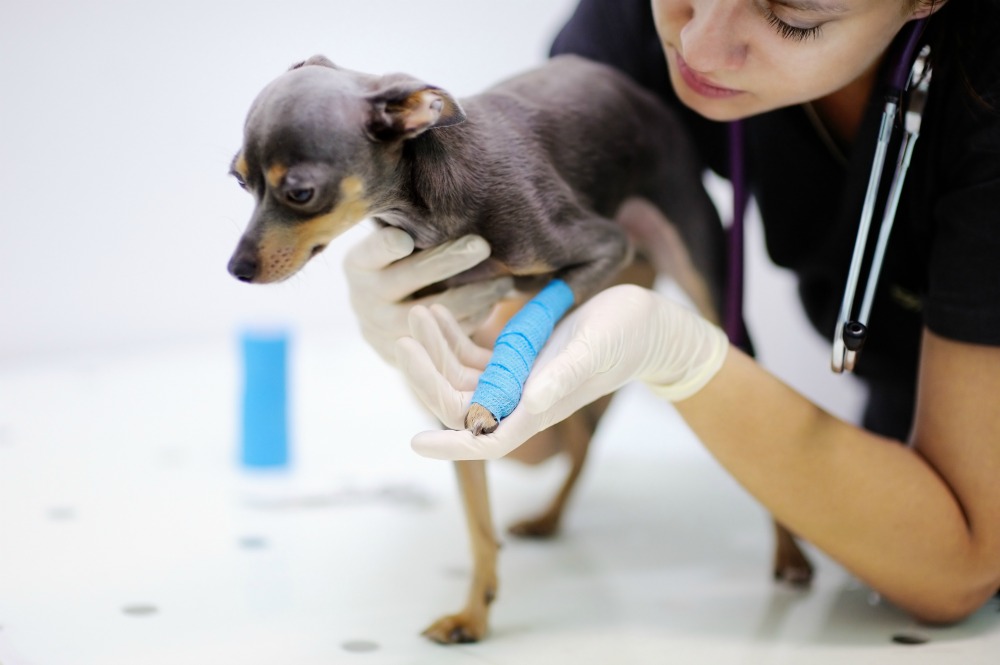As a veterinarian working in a small animal veterinary hospital, I get a lot of questions and inquiries as to the steps involved in becoming a veterinarian. Most questions are asked by parents of elementary aged children whose kids have shown interest, love or fascination for family pets, horses or wildlife. For these early inclinations toward veterinary science, most questions can be answered with emphasis on staying engaged in school and gaining as much animal experience as possible. I love school students who frequent the exam rooms with their parents reading questions from a prepared list, hang out at the front desk for no obvious reason, or even ask if they can volunteer their time cleaning and observing in the hospital. For those future vet school applicants, I have attempted to put together a summary of the requirements for admission to the Atlantic Veterinary College on the campus of UPEI in Charlottetown, PEI.
If you are lucky enough to live in Atlantic Canada these guidelines apply to you, if you are not so fortunate you will have to apply as an international student, and the process is a bit more complicated. There is fine print as to official resident status, so make sure you know what your status is.
As a resident of Atlantic Canada, the selection criteria for admission to veterinary school is split into two parts: academic achievement, which accounts for 60% of your overall score and non-academic aptitude, which accounts for 40% of your overall score.
Academic achievement is broken into two parts, the academic average which represents 50% of the overall score, and a Graduate Record Examination Score which makes up the other 10% of the academic score. The academic average is calculated from marks obtained from 20 post-secondary undergraduate courses, and those courses must include: 3 animal biology courses, 1 genetics course, 2 mathematics courses (1 which must be statistics), 3 chemistry courses (1 which must be organic), 1 English composition course and 10 electives. The Graduate Record Examination (GRE) is a test that can be done online or on paper and the results are submitted directly to the AVC admissions office. You can find out more about the test here: http://www.ets.org/gre The UPEI Application and Admission website shows the averages of the last 5 AVC class years, and they range from 84-86%. This average will obviously change from year to year depending on the applicants.
As part of the non-academic aptitude portion of the application, candidates are required to submit structured descriptions of their veterinary and animal experiences:
“Veterinary experience must be obtained under the supervision of a qualified veterinarian working in the field of veterinary medicine. It may be paid or voluntary. Experiences may involve general or referral clinical practice and/or provision of veterinary care to animals in research laboratories, zoos, animal shelters, and animal rehabilitation facilities. Experience with veterinarians working in non-clinical capacities including regulatory or public health agencies is also acceptable. Veterinary experience should involve direct interactions with one or more veterinarians working in the field and should not be restricted to reception or administrative duties only. Applicants should be advised that there is no minimum number of hours required for application; however, it is advised to attain as many hours with as many different species (e.g., swine, cows, horses, exotic pets, dogs, cats, etc.) as possible. In most cases, veterinary experience in North America is recommended.
Animal experience may involve working with livestock, breeding or showing animals, working in a pet store, participating in equestrian activities, or any other animal related hobby or experience where a veterinarian is not always present and/or does not provide direct supervision. It may be paid or voluntary. Please note that animal experience for the purposes of application to the DVM program does not include pet ownership.” (University of Prince Edward Island)
The rest of the non-academic aptitude involves an interview worth 20% of the overall score and a Work & School Approach & Behavioral Test (W-SAB test) worth 20% of the overall score. Both of these would occur on ‘interview day’ which takes place at the veterinary school.
Two more points to keep in mind from an applicant point of view. UPEI lists essential skills that contribute to a successful veterinary school applicant, they include observation, communication, motor skills, intellectual-conceptual, integrative, quantitative abilities, behavioural and social attributes. Also, the base tuition for the veterinary medicine program as of 2018 is listed as $13,000/year, with the veterinary medicine degree being a 4-year degree.
This blog is meant to be a summary of collected information only and should not be relied on as factual, it is rather an attempt to provide some answers to frequently asked questions, using information available at the time of writing (October 2018).
Good luck and don’t give up!
Written by: Chris MacDonald, DVM





